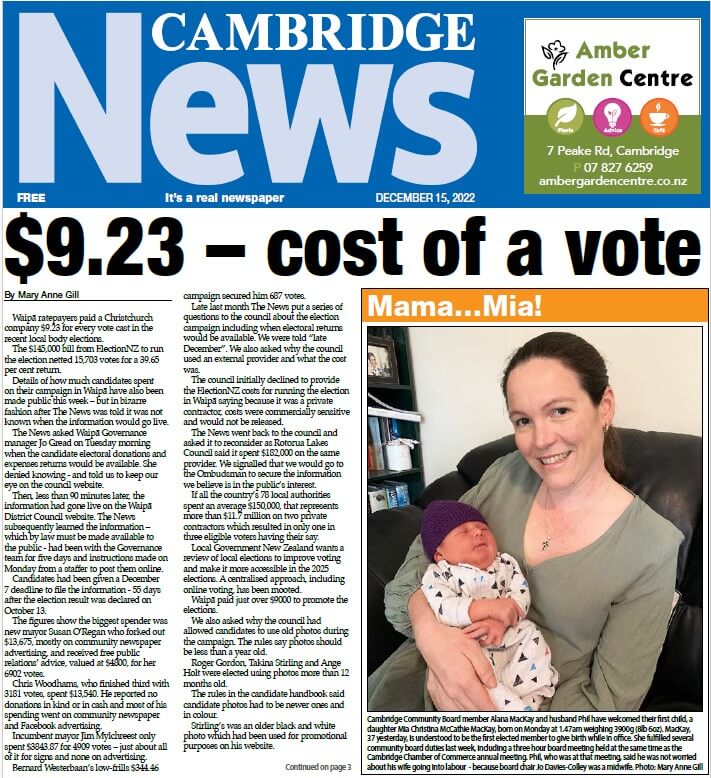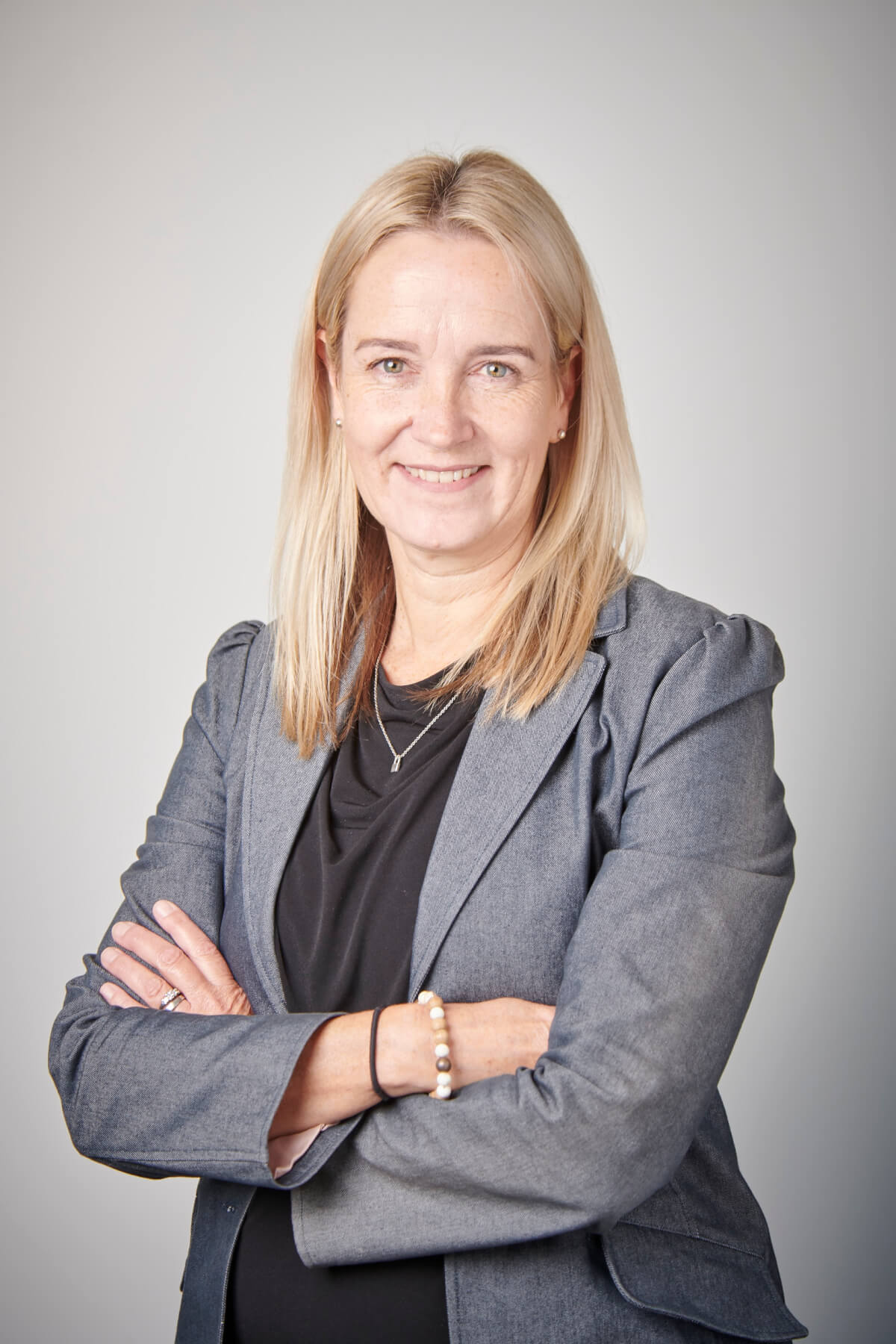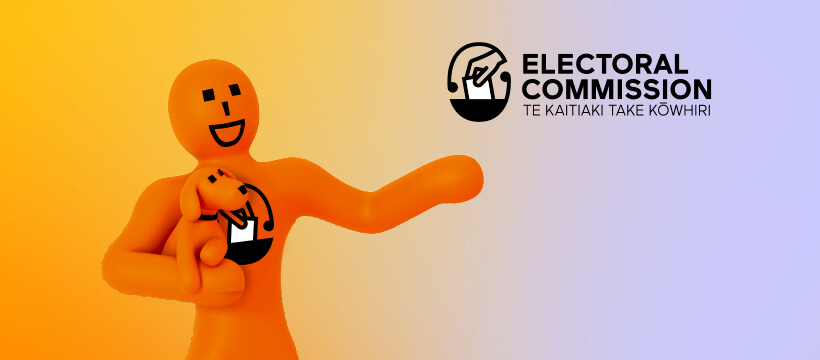
Local Body Elections
A local government electoral reform group recommendation – endorsed by councils nationwide – can be traced back to The News article published after the 2022 election, which revealed Waipā ratepayers paid a Christchurch company $9.23 for every vote cast.
See: $9.23c – the cost of a vote

This Cambridge News front page article from December 2022 told read-ers how much a vote cost in Waipā. The story also ran in the Te Awamutu News on the same day.
ElectionNZ was paid $145,000 to run the election which, netted 15,703 votes for a 39.65 per cent return.
Waipā mayor Susan O’Regan, a member of the working group, helped present its final position and 20 recommendations at the Local Government New Zealand conference last week.
One key recommendation was that local government elections should be run and promoted by the Electoral Commission.
In the group’s early discussions, O’Regan shared a copy of The News’ December 15, 2022 article to highlight the cost of outsourcing elections.
Currently, local bodies are responsible for running their own elections, and most contract that work out to private firms.
The Public Service Association which represents more than 11,000 local government workers and has a total membership of more than 96,000 people agreed with the recommendation.
“Private companies should not be running local body elections, it is not appropriate for something so important to the functioning of local democracy,” said PSA National Secretary Fleur Fitzsimons.
“The Electoral Commission is publicly accountable and already has a track record for delivering Parliamentary elections, we call on central government to give the Electoral Commission this role, with the proper resourcing to do it.”
The working group’s main recommendation, outlined in the Refreshing Our Grassroots Democracy paper, was to return to polling-booth voting and move away from postal voting.
Group chair and Nelson mayor Nick Smith, a former MP, said it was inefficient for 78 councils to run their own elections.
“The current situation, where most councils contract out their election management to two private companies, is very unusual internationally,” he wrote in the paper’s foreword.

Susan O’Regan
O’Regan agreed saying there was consensus within the group – including elected members from across the country and an Otago University academic – that outsourcing democratic services was inappropriate.
She told the News: “When we were talking about the costs per vote… I pulled out and shared with everybody the work your article did around the cost per vote in our area.”
That sparked further research into the cost of using the Electoral Commission’s “orange man” branding and services.
The commission’s orange man does not appear in adverts in Good Local Media’s Waipā publications – despite the fact the Cambridge News and Te Awamutu News are the only publications which provide independent coverage of local body politics.
O’Regan also presented at the conference on how local government could better communicate its value to voters and improve civic engagement.
“I talked broadly about engagement that we do well or not well enough, through to civic education, how can we promote understanding and active citizenship,” she said.
The group also recommended retaining the Local Democracy Reporting scheme, noting that the decline of local media poses a threat to local democracy.
“While central government funding is no panacea, investment in the Local Democracy Reporting scheme has ensured those communities receive local government news,” the paper said.
“Local media could be supported in a range of ways, including initiatives that encourage other local media providers to start up or that directly support existing local media providers.”
O’Regan noted that the scheme had not benefited Waipā directly, as Good Local Media – publisher of Cambridge News, Te Awamutu News, and King Country News – was not part of it.
Two newspapers that were part of Stuff and NZME who were in the scheme – Te Awamutu Courier and Cambridge Edition – have closed or are in the process of closing.
Other recommendations to the council were four-year terms, greater engagement in schools and the community to understand how local government works and what it does and provide an outlet for candidates to promote themselves online and by video.
See: Vote cost calculated

The orange man is used extensively in Electoral Commission publicity to advertise elections – but not in Good Local Media publications.








